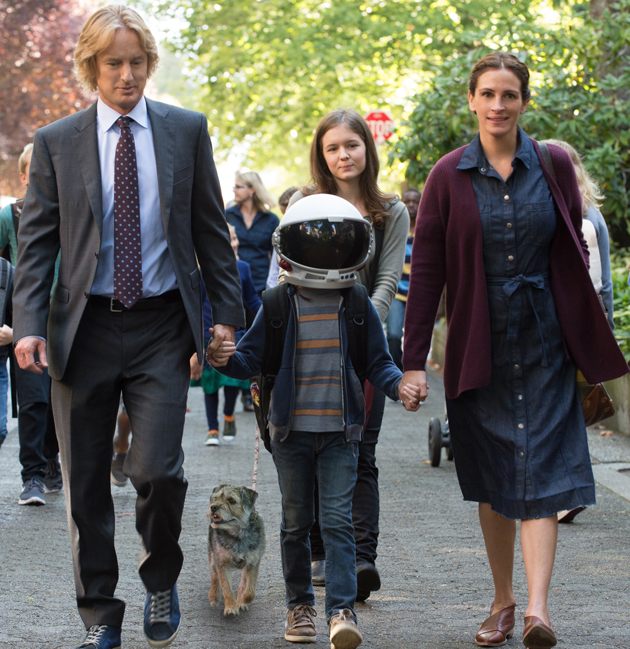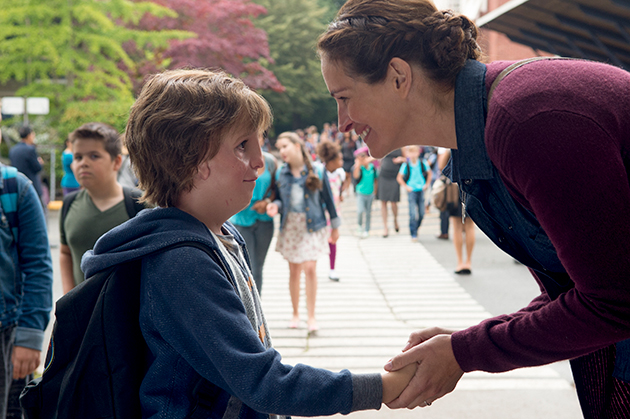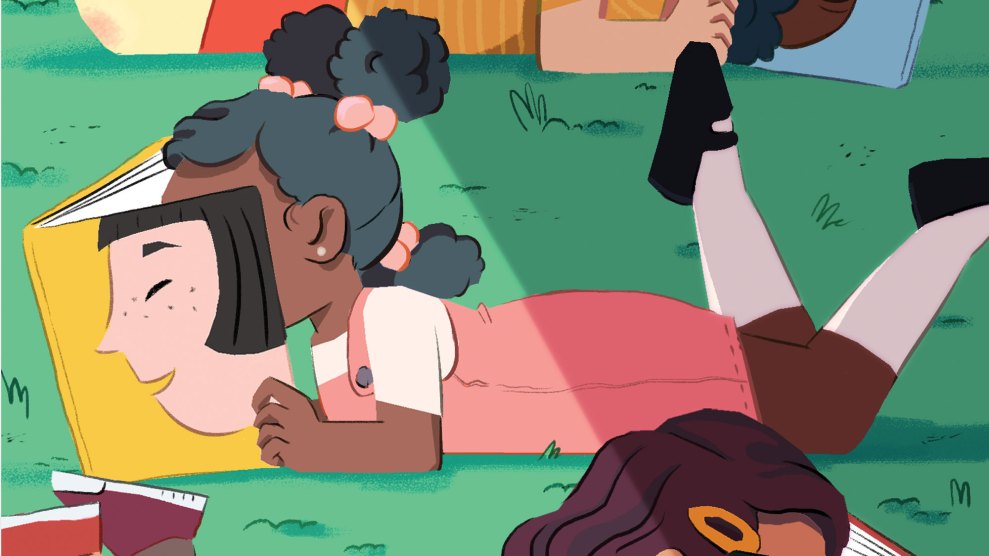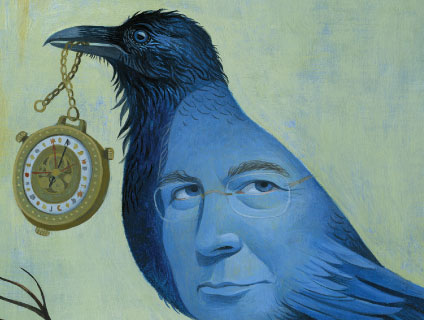The Portmans—Nate (Owen Wilson), Via (Izabela Vidovic), and Isabel (Julia Roberts), accompany Auggie (Jacob Tremblay) to his first day of school. Dale Robinette
When R.J. Palacio’s debut children’s novel about a boy with severe craniofacial deformities was optioned for film, she figured it would be an indie production with lesser-known actors. “Not Julia Roberts!” she says. Wonder, which has sold more than five million copies and been translated into 45 languages, follows the travails of August Pullman—a boy whose Treacher Collins syndrome makes strangers recoil—as he enters fifth grade at Beecher Prep.
The heartwarming movie, which opens next Friday, features Roberts as Auggie’s mom, Owen Wilson as his dad, Homeland‘s Mandy Patinkin as the school principal, and Hamilton star Daveed Diggs as Auggie’s English teacher. Parents of school-age kids can count on accompanying them to the multiplex to witness this celebration of youthful courage. It might even inspire you to “choose kind,” as Palacio puts it. “Kindness doesn’t come naturally,” she says. “I certainly have a quick temper. Somebody cuts me off in traffic, I’m like… ‘Choose kind!’ It’s the new ‘Count to three.'”
Mother Jones: Wonder was inspired by your own encounter at an ice cream shop, with a kid who had Treacher Collins syndrome. Tell me about that.
R.J. Palacio: We found ourselves sitting right next to a little girl who had a very significant facial difference. My younger son was about three at the time. He got scared, basically. He started to cry. In my haste to shield the girl from seeing my son’s reaction, I left the scene rather quickly. Afterward, it occurred to me that it might have looked like I was trying to shield my son from her. I really regretted it. I wished I had started talking to the girl and shown my son there was nothing to be afraid of. I spent the entire day obsessing. That night, I turned on the radio and the song that came on was Natalie Merchant’s “Wonder,” one of my favorite songs of all time. It’s about someone who is born different: “I am a wonder of God’s own creation.” That just clicked with me and I thought, “I’m going to write a book, and it’s going to be called Wonder. It’s going to be about what it must be like to be this child.
MJ: Little kids will stare, but older kids and adults tend to look away. I wonder which is worse.
RJP: In Wonder we talk about the “look-away.” Auggie is very cognizant of the fact that little kids are curious. He equates it to, “If a Wookiee were to start walking down the hallways of my school, I’d be curious, too.” What adults often bring is a sense of judgment, which borders on cruelty—not meaning to, I think.
MJ: Or just, “Oh, I don’t want to be rude.” But then by ignoring the person, you’re isolating them.
RJP: Exactly. What I’ve been told is just smile. Say hello. Treat them the way you would treat anyone else. Having said that, people don’t smile at strangers in New York! [Laughs.]
MJ: Did you seek out people with craniofacial issues to understand how they see the world?
RJP: I wrote my first draft first. Auggie became such a real little human being for me that I didn’t want to talk to any families for fear that were I to meet a real person I wouldn’t be able to separate fact from fiction.
MJ: Auggie’s face isn’t so bad in the film. Would you have preferred for him to be a bit harder on the eye?
RJP: This was the subject of a lot of conversations with the producers and the director. I did advocate for a realistic portrayal. In the book, he’s sort of a medical wonder because what he has is so significant. Treacher Collins is on a spectrum—they chose somewhere in between. Ultimately, I think it was a wise call.
MJ: Were they afraid viewers would be repulsed if it were too extreme?
RJP: They were open to everything. At the initial casting call, we were looking for somebody who had a significant facial difference. But that’s a very narrow pool—a kid who’s 10 or 11 whose parents would let him act.
MJ: And who has the talent.
RJP: Yeah. I didn’t realize they have to read the lines like 50 times in front of 100 people.
MJ: Auggie would’ve hated that.

Auggie and mom.
Dale Robinette
RJP: Exactly. Oftentimes, kids with these syndromes have speech impediments or difficulty being understood because of the architecture of their mouth.
MJ: Do they tend to have normal brain function, as Auggie does?
RJP: Everything I’ve read says they are, in terms of everything else, totally quote-unquote normal.
MJ: Wonder is written from various kids’ perspectives, but you left out the adults’ perspectives. How come?
RJP: It would be a different book. This was a book for children. We only see the side the parents choose to let their kids see. Auggie’s parents shield him from their pain. If I were to have gone into their minds, I would have had to reveal how the mom, if she goes out with her friends over a margarita or two, is more like, “Damn that woman at the ice cream store!”
MJ: Whom did you imagine in the key roles?
RJP: Not Julia Roberts! I have the most active imagination possible, and I just thought, “Oh, my god, Julia Roberts is going to be in this movie!” I would never even in my wildest dreams have dreamed of this cast—though Mandy Patinkin is the person I had always seen in [principal] Tushman.
MJ: Saul from Homeland!
RJP: Yeah. Every time I watch Saul, I think, “Oh, there’s Mr. Tushman!”
MJ: You mentioned he did something that stood out.
RJP: There was a scene where he’s kind of confronting Julian and his parents about the bully notes Julian has been leaving in Auggie’s locker. In the last take, [director] Stephen [Chbosky] already had what he wanted, and he said, “Okay, Mandy, do whatever you want.” Mandy started completely off script. He basically, in character, asked Julian, “Have you ever heard of Adolf Hitler?” Then he went on and on talking about this evil man and the disrespect, and then brought it back to the line, “We don’t tolerate bullies at Beecher Prep.” It was incredible. Then, when leaving the set, he gave a farewell speech about the times we’re living in and about the importance now, more than ever, of trying to be kind to one another and trying to raise the level of discourse.
MJ: You also called Owen Wilson’s performance “unexpected.” How so?
RJP: Nate Pullman is the wisecracker. I fully expected that part of Owen’s performance, but when he brought this other sort of open-wound feeling to Nate, I wasn’t expecting it. He blew me away. But as I left the theater and for days afterwards, Julia Roberts is the one I kept on thinking about, her reactions to things. She is really the heart of the movie.
MJ: Wonder is a feel-good story, but what happens when a kid with Auggie’s condition grows up?
RJP: Having spoken to a lot of parents—it’s hard to say this without sounding self-congratulatory—people are coming up to their kids and saying, “Oh, do you have that thing Auggie has in Wonder?” There’s less fear and less social awkwardness because of that, and they feel much more hopeful about the prospect of their kids growing up and going to college. I ended on a happy note in Wonder because I can—it’s my book! For me, fifth grade was a microcosm of how Auggie’s life will go. It will have its good days and a lot of bad days and a lot of challenges most of us never have to face—but he has everything he needs: his intelligence, his humor, his parents, his family, his network of friends. He’s going to be fine.

R.J. Palacio
Tim Knox








